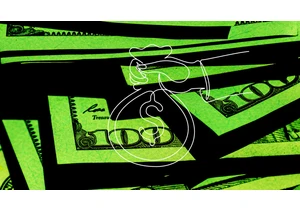Lore isn’t just for games like The Elder Scrolls or films like The Lord of the Rings—online, it has evolved into something entirely new.
The Old English word made the shortlist for Oxford University Presss’ 2024 Word of the Year (though it ultimately lost to brain rot). Oxford defines lore as “a body of (supposed) facts, background information, and anecdotes relating to someone or something, regarded as knowledge or required for full understanding or informed discussion of the subject in question.” Historically, the term has been tied to teaching and knowledge-sharing, with roots stretching back nearly a thousand years.
Today, however, lore has evolved into internet slang for the dramatic—and sometimes traumatic—details that define a person’s identity. “When your mum casually drops lore like it’s nothing serious but it’s genuinely some of the most insane stuff you’ve ever heard,” reads one post on TikTok. “Me the second I get to college when i get to lore drop my whole life to my new roommate,” reads another.
For some reason, the Account Planning Group of Canada offers a handy breakdown of the concept on TikTok. In the video, a Gen Z creator explains three key uses of lore: having lore (possessing a mysterious or intriguing backstory), dropping lore (revealing a previously unknown life event), and dad lore—the joke that fathers will casually reveal insane anecdotes from their past, leaving their children struck by how little they truly know about them.
@apgcanada Watch until the end to learn how to use “lore” in your next meeting! Have you heard all 3 of these uses of “lore” before? #lore #genz #strategy #marketing
♬ son original – APG Canada
Social media thrives on oversharing, and TikTok has made personal storytelling more common than ever. Influencers seamlessly incorporate lore drops into “get ready with me” videos, using their makeup routines as a backdrop for revealing deeply personal stories. A 2022 survey found that one in three Gen Z young adults has shared their mental health struggles on social media. When a potential TikTok ban loomed in late January, creators rushed to disclose their most closely held lore—fearing they might never get another chance.
“It’s a word of the heart and not the head,” Peter Sokolowski, Merriam-Webster’s editor at large, told The Wall Street Journal’s Ashley Wong. “Lore conveys emotion somehow, in that organic way, and that’s just a beautiful kind of repossession of this word.”
But, as one TikTok user pointed out, the trend has a darker side: “When you realize the lore you dropped actually happened and isn’t a funny little treat to share with the group & it has altered your personality and perspective forever and you won’t ever be the same.”
Autentifică-te pentru a adăuga comentarii
Alte posturi din acest grup

TikTok is shutting down TikTok Notes—wait, you didn’t even know it existed? Well, that explains a lot.
TikTok Notes, the platform’s short-lived attempt to take on Instagram (just as Inst

Influencing has a major pay gap, and it’s not what you might expect.
A new report from Collabstr, based on over 15,0


Tech leaders often brand themselves as “disruptors”—and few fit that label more snugly than Elon Musk. In the three months since joining Donald Trump in the White House following Trump’s election,

As the weekend deadline for TikTok to find a buyer approaches, bidders for the short-video so

At Visa’s ETA Transact event on April 3, the payments giant introduced three new products designed to simplify and secure payment acceptance. These innovations—Authorize.net 2.0, Unified Checkout,

